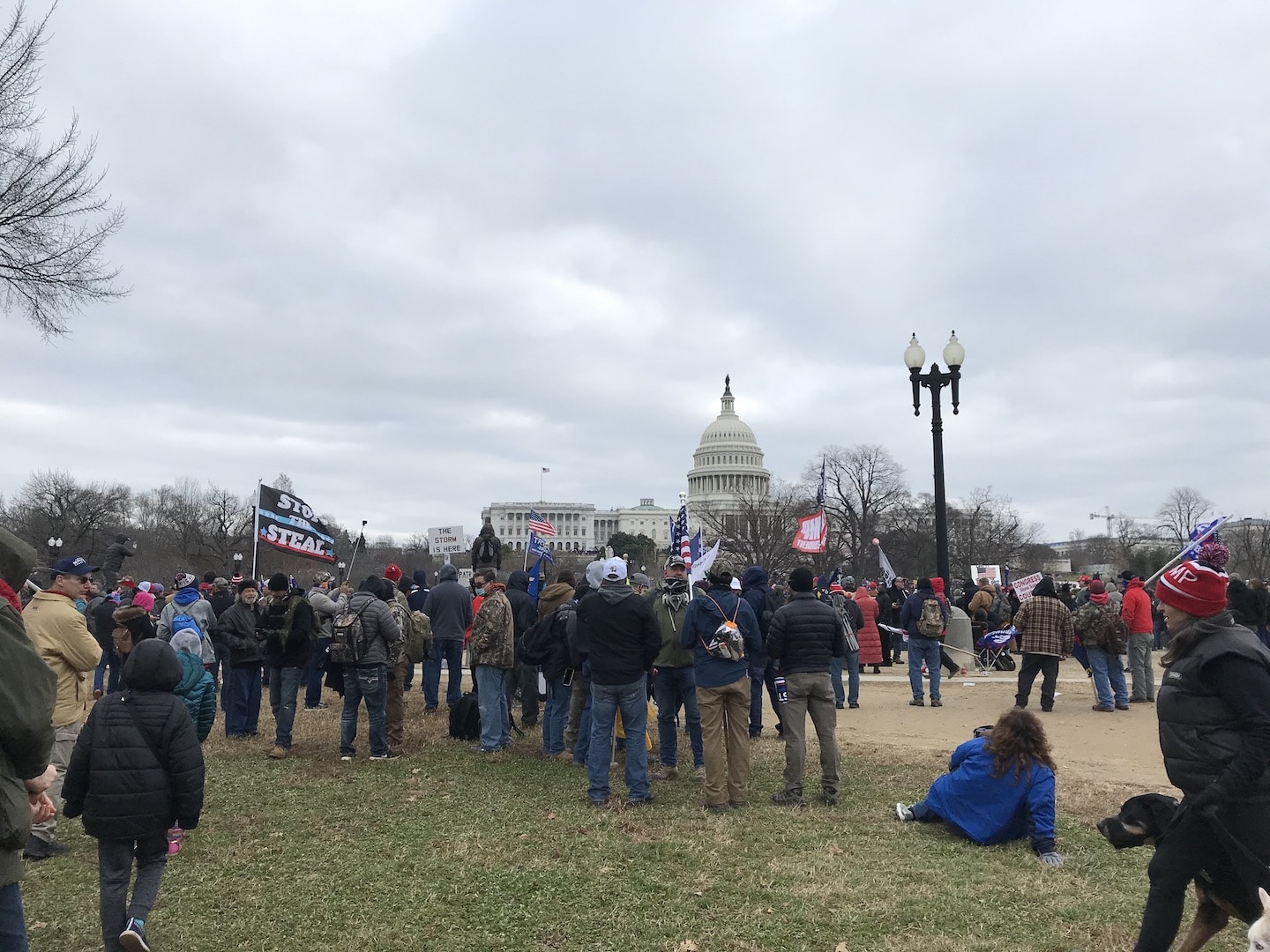When the Insurrectionists Came to Town: Reflections on our Cultural Blight and Reclaiming Shared Values

Called on by the President of the United States, the insurrectionists came to our nation’s capital and made their violent intentions abundantly clear by desecrating our Capitol Building. As would make sense, this has dominated the public conversation over the past week, with many in power trying to hold a corrupt president to account. Although I wish this process a successful outcome, we are still ignoring the deeper, more dangerous crisis that we are all complicit in within these not-so United States: our cultural blight.
As the mob stormed our seat-of-government, I biked down Pennsylvania Avenue, trying my best to be invisible with the goal to watch and understand. A lot of reliable news outlets covered the most violent contingent, those at the front who illegally stormed, destroyed, and committed acts of violence – I thus won’t write about this group. Rather, I focused on the middle and back of the crowd, those who were motivated to visit Washington, DC but still (purposefully or not) stayed out of our Capitol and away from the violence.
Here’s what I observed: thousands of people, almost exclusively white, shouting their anger toward President-Elect Biden and the massively dangerous lie of the “stolen election”. Perhaps only 10-15 individuals wore a facemask. Trump flags and Confederate flags easily outnumbered US flags, as many of their holders yelled “patriotism”. The police presence was sparse and paled in comparison to the BLM protests I witnessed over the summer. For those not shouting, many smiled and some even laughed in delight at the ongoing violence committed by the insurrectionists. As I walked by them, it was hard to say if this particular contingent was radicalized since they were not technically part of that violence – and in fact, we know so little about them.
In the minutes and hours following the attack, I received close to a dozen messages from friends around the globe. It was clear that the world was watching, and I felt a deep sense of embarrassment and despair. How did we get to such a devastatingly low point? I offer six underlying factors to reflect on:
- A segment of the US (predominantly white and living in conservative, rural areas), has been radicalized, driven by false narratives and rallied by the president and his cronies. They have already utilized violence and might do so again on Inauguration Day. We must call out this movement, analyze it, and work toward its abolishment and promote peace. But we must do so with nuance and precision, understanding the difference between the mob and those who did not engage in violence at the Capitol. Sweeping generalizations between all those who support President Trump and the radicalized contingents shows a lack of critical thinking.
- This radicalization is driven by something more fundamental than politics; it speaks to our culture and how we consider ourselves as Americans. The political divide between Democrats and Republicans is now a much deeper, widening chasm between the “left” and the “right”, increasing polarization to further extremes as it decreases more moderate spaces and mindsets.
- We have all become complicit in this widening chasm through the shaming and demonization of the “other side” and have created effective means to punish them. On the left, “social justice” has been co-opted by many online activists who staked their claim of success as an ever-rising use of politically correct, inclusive language. For anyone caught speaking to the contrary, those activists often get them fired. On the right, many forceful supporters of Trump flat-out use social media to make death threats to anyone critical of the president, and some have even acted out violently. (For a more nuanced perspective, see Kathryn Norlock’s “Online Shaming”). Few of us have the moral courage to look in the mirror and admit our shared culpability in this widening chasm, our cultural blight.
- Social media and traditional media are fueling this blight. Lets’ ask: how would President Trump have rallied all those people on January 6th had it not been for Twitter, Parler, and a 24-hour news cycle amplifying his message? We have seen how social media and traditional media work together to create echo chambers, cultivate groupthink, and to amplify dangerous conspiracy theories, all culminating to push people to further extremes.
- These extremes and cultural blight have perilous repercussions. To briefly examine the ongoing COVID-19 crisis, simple and effective facemasks are no longer personal protective equipment, but rather an indicator of where individuals stand culturally and politically, often culminating in super-spreader events and contributing to a country with the highest death rate on the planet.
- It will not be politics or a political party that can heal this blight. Although I am proud of a Biden-Harris Administration and a Democrat majority across the government, this may only fuel the self-righteousness of the other side and the pendulum will eventually swing back to them. We need new cultural leaders to emerge, ones with platforms that are neither partisan nor political, who can inspire us to live with shared values.
I write this piece specifically for the Center for Values in International Development and in this moment because I believe that values can combat our cultural blight and division. I urge us to consider these five points and to proudly reclaim our shared values:
- Let’s cultivate empathy by being able to place ourselves in another’s shoes and honor their dignity. Instead of demonizing and dismissing the humanity of the other side, we can use empathy to understand one another – while still working against radicalization and violence.
- Honor pluralism and diversity of thought, expression, identity, and culture as an inherent right as well as a strong indicator of resilient societies. We gain nothing by shaming or violently shutting down those we disagree with.
- Practice the art and science of critical thinking. Although it’s easier to re-Tweet an article that we haven’t read because we agree with its title, this does not make it true or real. Never before have we been surrounded by so much (mis)information, and its our responsibility to understand references, citations, media platforms and their funders, and seek the veracity of claims through reliable sources.
- Shake off arrogant biases of “American Exceptionalism” and learn from the rest of the world. Regardless of our political side, so many Americans grew up indoctrinated into the warped mindset that the US is exceptionally unique and that our norms and processes of governance are somehow better than in other countries. Once we all identify and expel this cultural self-righteousness, we can see the rest of the world in all its unique beauty, and begin to learn to live within it as equals.
- Alongside cultural leaders, we still need transformative political leadership that does not revel in chaos and division, but rather is driven by a morally defensible vision of the shared common good. As populism has reared its ugly head in the US and around the world, we are all in urgent need of leaders who genuinely care for the well-being of their people and can firmly situate working together and internationally to address the urgent challenges of our time.
Phil Crehan serves on the Senior Advisory Council of the Center for Values


